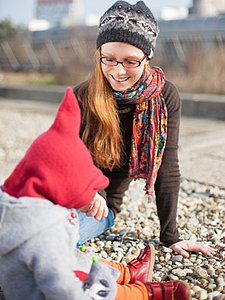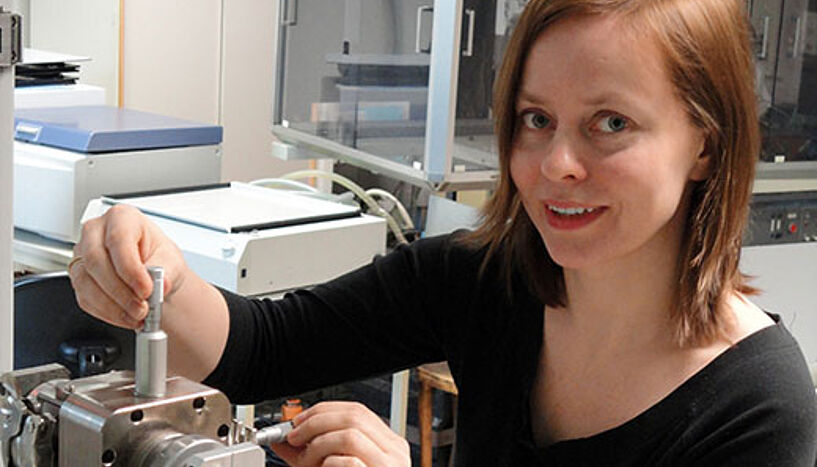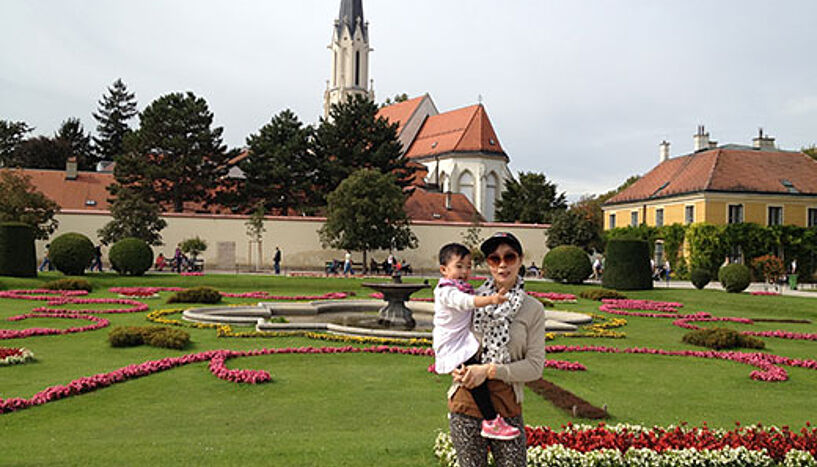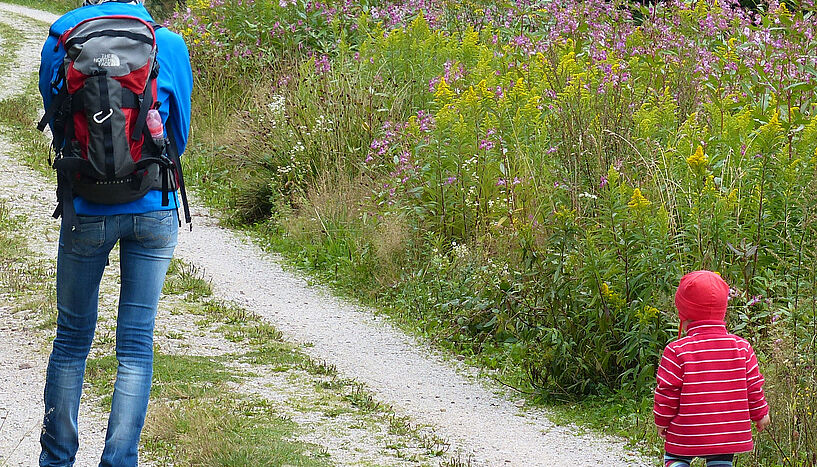Celine Lesaulnier: "We all start out as scientists"
| 03. März 2014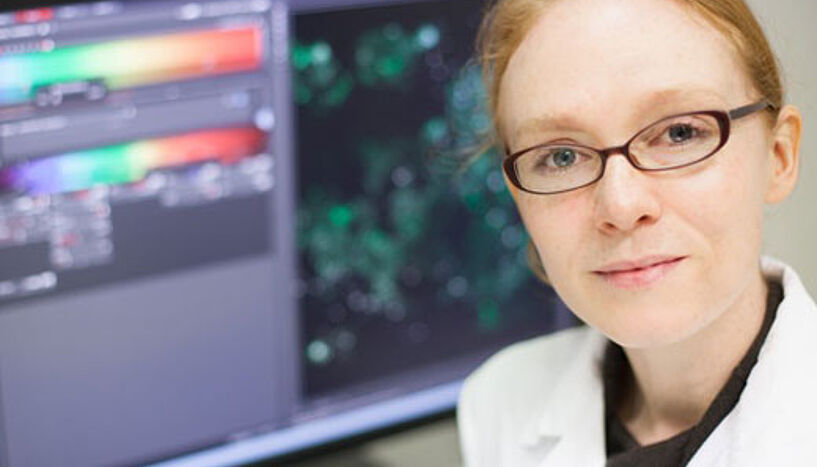
The microbiologist Celine Lesaulnier received a Back-to-Research Grant.
"Science is passion, vision, and life and none of that is necessarily synonymous with sacrifice", says the microbiologist Celine Lesaulnier who received a Back-to-Research Grant and works at the Department of Microbiology and Ecosystem Science of the University of Vienna.
Why did you study microbiology?
Celine Lesaulnier: I grew up surrounded by nature in rural Australia. As a child I could usually be found during my free time knee deep in a pond catching and studying every organism I could see. You could say the journey started then. I became captivated with microbiology during a 6-month rotation in the last year of my bachelor’s degree. I was set to go to medical school, but became wonderfully distracted. As I now watch my daughter discover the world I am constantly reminded that we all start out as scientists.
What was the biggest challenge on your journey so far?
Lesaulnier: The concept of a work-life balance has proved quite challenging. The expression alone implies that work has nothing to do with life. My work is an integral part of my life and becoming a parent has forced me to redefine that balance. More recently, debunking the myth that a successful academic career in science is incompatible with having children was also challenging. It turns out that motherhood is quite common among women scientists at the University of Vienna, and besides, Marie Curie won her second Nobel prize as a widowed single mother of two small children. Science is passion, vision, and life and none of that is necessarily synonymous with sacrifice. With support, dedication and flexibility, clearly it is possible to overcome the challenge. Having a supportive supervisor is also important. In this respect I could not be luckier.
Back-to-Research Grant: The grant provides support for researchers writing applications for research projects that serve their career development and/or writing/completing publications. The target groups are female Post-doctoral researchers without a long-term contract (or who came to Vienna from abroad and are looking to restart/continue research), from the fields of Earth Sciences, Geography and Astronomy, Life Sciences, Mathematics, Computer Science, Physics and Chemistry, who reduced or interrupted their academic research in the past five years in order to care for their child/children.
What are the difficulties in entering the scientific work after maternity leave again?
Lesaulnier: The most obvious include being tired from caring for a toddler who still wakes in the night, being constrained by day care hours, and that progress in one important area is naturally slowed to include another. I’ve had to learn to compartmentalize my daily life to be as efficient as possible during working hours, and vice versa at home to nourish family life. Even so, there never seem to be enough hours in a day.
Why did you apply for the Back to Research Grant?
Lesaulnier: This grant is such a wonderful initiative by the University of Vienna. As mentioned above, support and flexibility are key. This grant offered those, specifically as an extension to complete work that is ongoing and has naturally slowed in its progress due to accommodating our new situation. It therefore reduces work related stress in the new family home. This grant will further support us whilst I complete several manuscripts that are currently in the works, submit grant applications for our next step, and raise my child. This grant will enable me to complete the first two tasks to secure our future, whilst also assuring quality care and attention to my daughter. Thank you.
What are your plans for the future?
Lesaulnier: Well, for starters, they no longer concern just me. Having a child as a postdoc not only provides me with challenges, but it has also helped me to better define my career goals. In this environment of responsibility and limited time I am constantly thinking about how each move I make is taking me closer to those goals. In short, I would like to find a way to have a small research group whilst still remaining flexible enough to properly care for my child. The way in which I will manage this requires time, experience, talking with peers who are established academics and parents, and educating myself constantly on the progress of research and the funding opportunities available.
Should women be specifically promoted in science?
Lesaulnier: Of course, but not exclusively. Women are a valuable intellectual resource, a long educational investment, and we unfortunately see too many losing faith in their ability to succeed in academia due to a perceived incompatibility with having a family. As you are doing here, more positive information needs to be provided to women who are considering science careers about women who are already succeeding in them, while raising families, and carving out careers in their own way. However, the assumption that these are uniquely women's problems is entirely the point. The family model has changed and the issues discussed here are potentially everyone's struggle. Supporting women should continue, but we now also need to think about changing (i) the work scaffold to become more flexible, (ii) supporting men who also want to take on a more active role in raising their children, and (iii) funding bodies and employers not penalizing parents with holes in their publication records, CV’s, or on their age as a result. (red)
|
| After completing a bachelor’s degree in biomedical science and a doctorate in molecular microbiology and biotechnology, Celine Lesaulnier spent several postdoctoral years contributing to medical research and recently had the opportunity to come to the University of Vienna to do a postdoctoral fellowship on microbial ecology in the Department of Microbiology and Ecosystem Science. |
|---|

